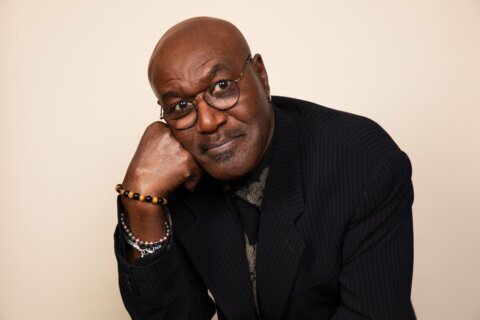WASHINGTON — There’s a very fine line between “guilty” and “guilty pleasure” in our culture.
But after watching “Fifty Shades Freed,” the third and final adaptation of E.L. James’ erotic fiction “Fifty Shades of Grey,” the verdict is in: guilty, your honor, with very little pleasure.
The final installment kicks off as submissive bookworm Anastasia Steele (Dakota Johnson) marries her billionaire dominant Christian Grey (Jamie Dornan). But as they attempt to live kinkily ever after — buying houses, debating surnames and contemplating children — a jealous stalker from the past, Jack Hyde (Eric Johnson), simply won’t leave them alone.
If you liked the books, I suppose you’ll like to see every steamy detail come to life, and if you liked the previous movies, you likely won’t mind the forced chemistry between Johnson and Dornan. While Dornan’s take is dead as a doornail, Johnson gets one sassy scene where she tells off a flirty architect, reminding us of her Tippi Hedren and Melanie Griffith pedigree.
But while the two S&M lovebirds get plenty of time in the sack — and the shower, and the passenger seat, and the barber’s chair — it feels like an idea past its expiration date. When the first novel arrived in 2011, it was the year that Rihanna sang, “Chains and whips excite me.” But in our post-Weinstein world of 2018, the dominant-submissive concept feels odd.
Even if we table the notion of zeitgeists, the film’s failures exist beyond our broader cultural shifts. Any self-respecting moviegoer has to admit that this script is about as lazy as it gets.
For the entire first half, every other scene is a sex scene. Seriously, keep a running tally and you’ll see its lackadaisical construction. Sure, “Fifty Shades” never pretended to be high art when it made you blush flipping pages by the pool. But in screenplay structure, it’s the laziest possible approach, recalling soft-core porn where the intermittent “plot” scenes don’t matter.
These filler scenes include a random explanation for Ana’s promotion (“You were gone, so you got a raise!”); revisionist history of past events (Guess what? The helicopter crash from “Fifty Shades Darker” was planned!); and a tonally-inconsistent car chase fleeing a stalker SUV (this should be some creepy “Fatal Attraction” stuff, but the upbeat soundtrack doesn’t mind).
The second half is even worse, as the storyline careens toward an outlandish kidnapping plot that drew unintended audience laughter. As soon as Ana discovers Christian’s handgun in a secret drawer, we can predict exactly how it will be used (i.e. “Chekhov’s Gun” theory). And the more we learn of Jack Hyde’s stalker motivations, the more the tone veers into the ridiculous.
By the time we reach the closing montage set to a reprise of “Love Me Like You Do,” we’re reminded that the soundtrack has long been the sole redeeming quality, launching the pop careers of Ellie Goulding, Sia and The Weeknd. Here, the rapid imagery plays less like a highlight reel of fond memories and more like old wedding videos from a painful divorce.
As the end credits roll, you’ll rush toward the exit, only to realize there’s an “extra scene” as an epilogue. In movie terms, this tacked-on closure rips off the end of “The Hunger Games.” In sex terms, it’s a bad lay that begs us to stay and cuddle when we really just want to go home.
And so, this trilogy is the film equivalent of bad sex. Part 1 was awkward foreplay that stopped just when we were getting into it. Part 2 went through the motions with monotonous moves. And now, Part 3 reaches a clumsy climax that’s so obviously fake that you just want it to end.
Which brings us to the best part: knowing that this bizarre cultural phenomenon is mercifully over. At long last, we’re out of our misery and can finally shout our “safe word.” We can put away the kinky handcuffs. We’re no longer bound and gagged. We’re finally “freed.”









